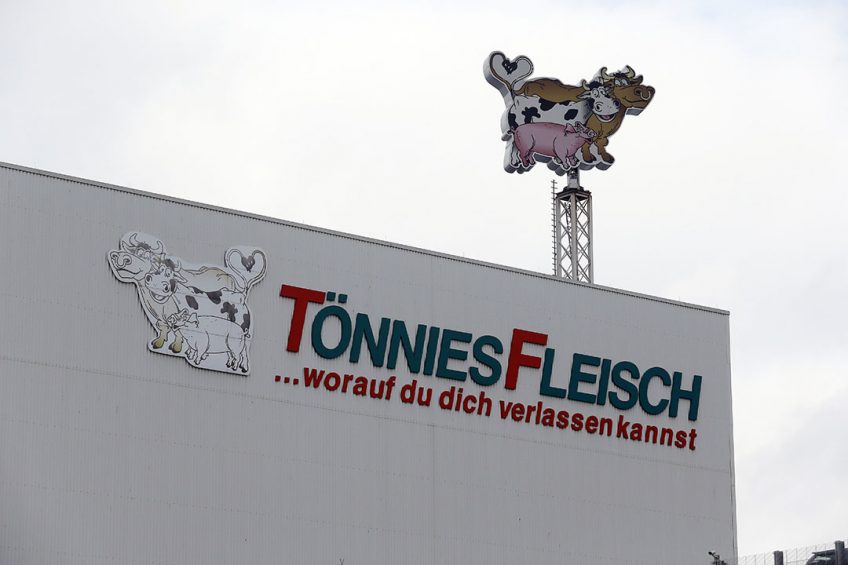Covid-19: Tönnies closes largest pork plant in Germany

Whoever thought that things in Europe were already easing with regard to Covid-19 and the closure of meat plants, might want to think again. One of Germany’s largest pork plants had to temporarily close due to Covid-19 infections of many workers. China has banned meat imports from this plant.
At meatpacker Tönnies Fleisch in Rheda-Wiedenbrück, in the German state North Rhine Westphalia, the majority of employees tested positive for Covid-19. The meatpacker had to shut down its operations immediately. While tests are ongoing, by Tuesday, June 23, 1,550 employees had tested positive.
Quarantine for pork plant employees
The pork plant’s board has taken firm measures to limit the risk of further spread of the virus. All infected employees working at the plant, as well as those with whom they were in contact, had to be quarantined. That quarantine also applies to anybody who is working on the slaughterhouse’s premises and who hasn’t been tested as yet. According to the local authorities in the Gütersloh area, where the plant is located, the measures apply to about 7,000 people.
The board has decided not to apply a complete lockdown in the Gütersloh area. Nevertheless, kindergartens and schools have been closed down – a situation that will last until the summer holidays. It is unclear until when exactly the pork plant will remain closed.
Closure will disrupt the German pig market
It is expected that the closure will strongly disrupt the German pig market, according to experts talking to German agricultural media SUS. On a daily basis, the plant in Rheda-Wiedenbrück can deal with 20,000 pigs. Making sure those pigs can be slaughtered elsewhere is not an easy task, which may have an effect on pig prices.
Not only Germany and its direct surroundings will feel the effects of the closure. China’s customs have also indicated that it suspended pork imports from Tönnies.
The situation has caused the authorities to reinstate the Covid-19 related lockdown for the region around the town Gütersloh. The area houses almost 370,000 people.
Low temperatures are ideal for Covid-19
It is unclear as yet how the virus entered the plant’s staff and why it spreads relatively fast. Gereon Schulze Althoff is leading the Tönnies crisis team. At a press meeting, he explained that the low temperatures in the slaughterhouse possibly create ideal surroundings for the coronavirus to spread. He added that it is clear the pandemic is far from over and that Tönnies, just like other meatpackers, may easily have to deal with another outbreak.
In a different part of Germany, a Tönnies plant also seems to have closed its doors. In Kempten in Badem-Württemberg, doors have stayed closed since Friday, according to Bavarian media channel BR. It is unclear why.

Covid-19 Up-date
What impact is the pandemic having on the global pig sector and how are they dealing with it.
Van Rooi Meat back in full production
Across the border in the Netherlands, another pork plant was allowed to open again. Slaughterhouse Van Rooi Meat in Helmond got the green light to go back into production bit by bit as from June 13 and as from this week, things were back to normal. All employees are being tested negatively and at the gate there is a daily health check. This slaughterhouse had to temporarily close its doors on May 28 when some employees tested positive for Covid-19. A test revealed an infection rate of 17%.











